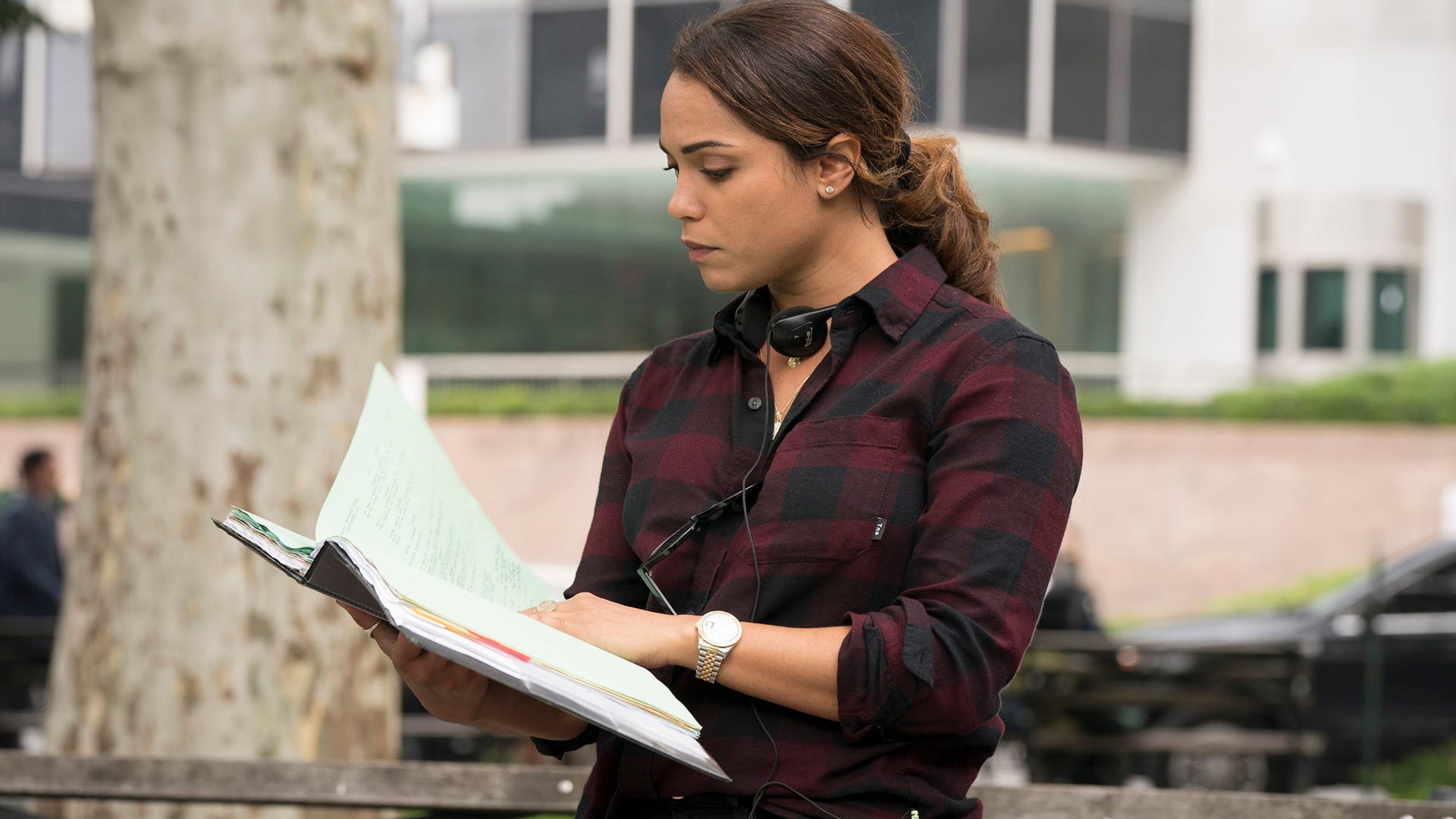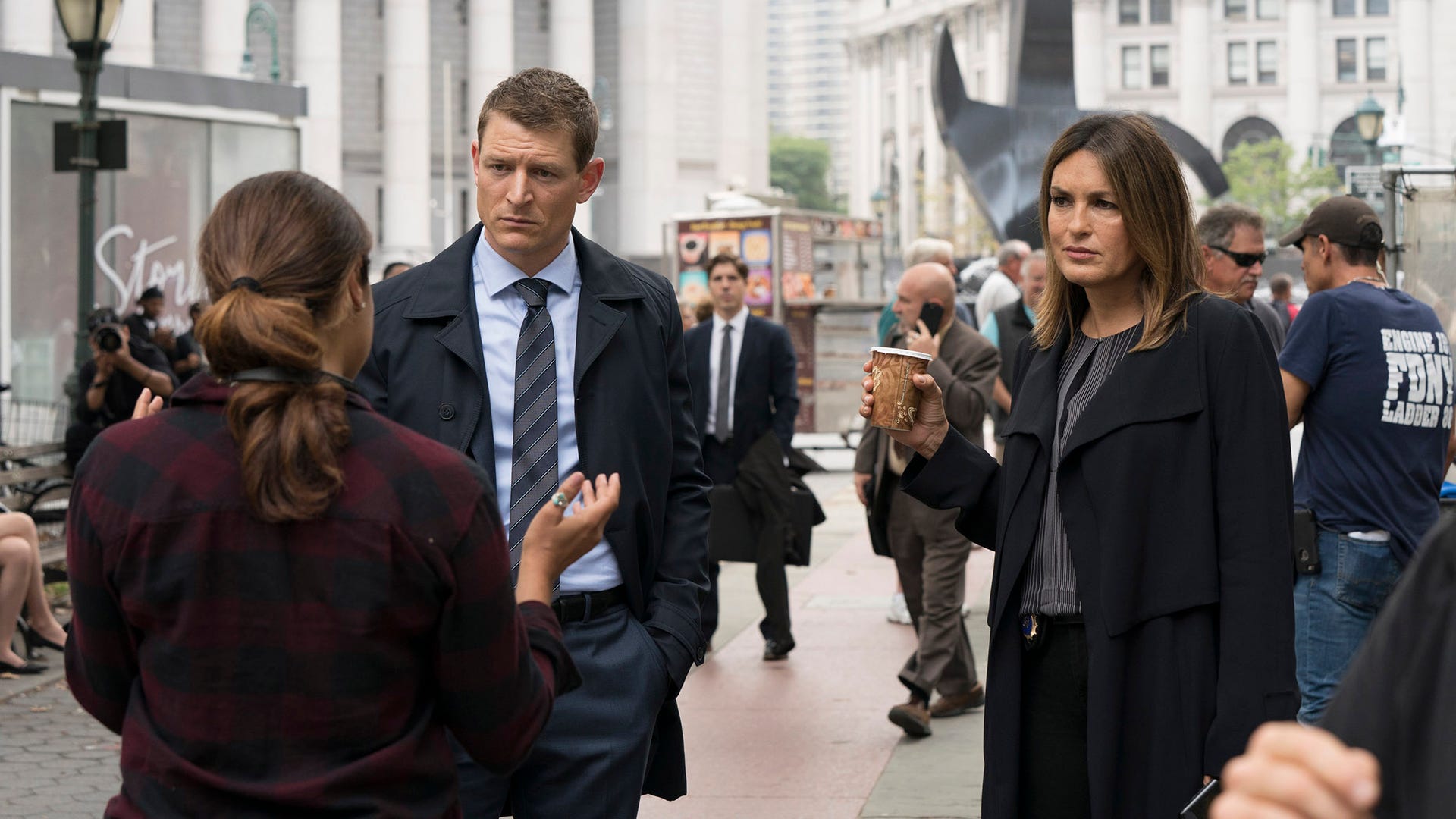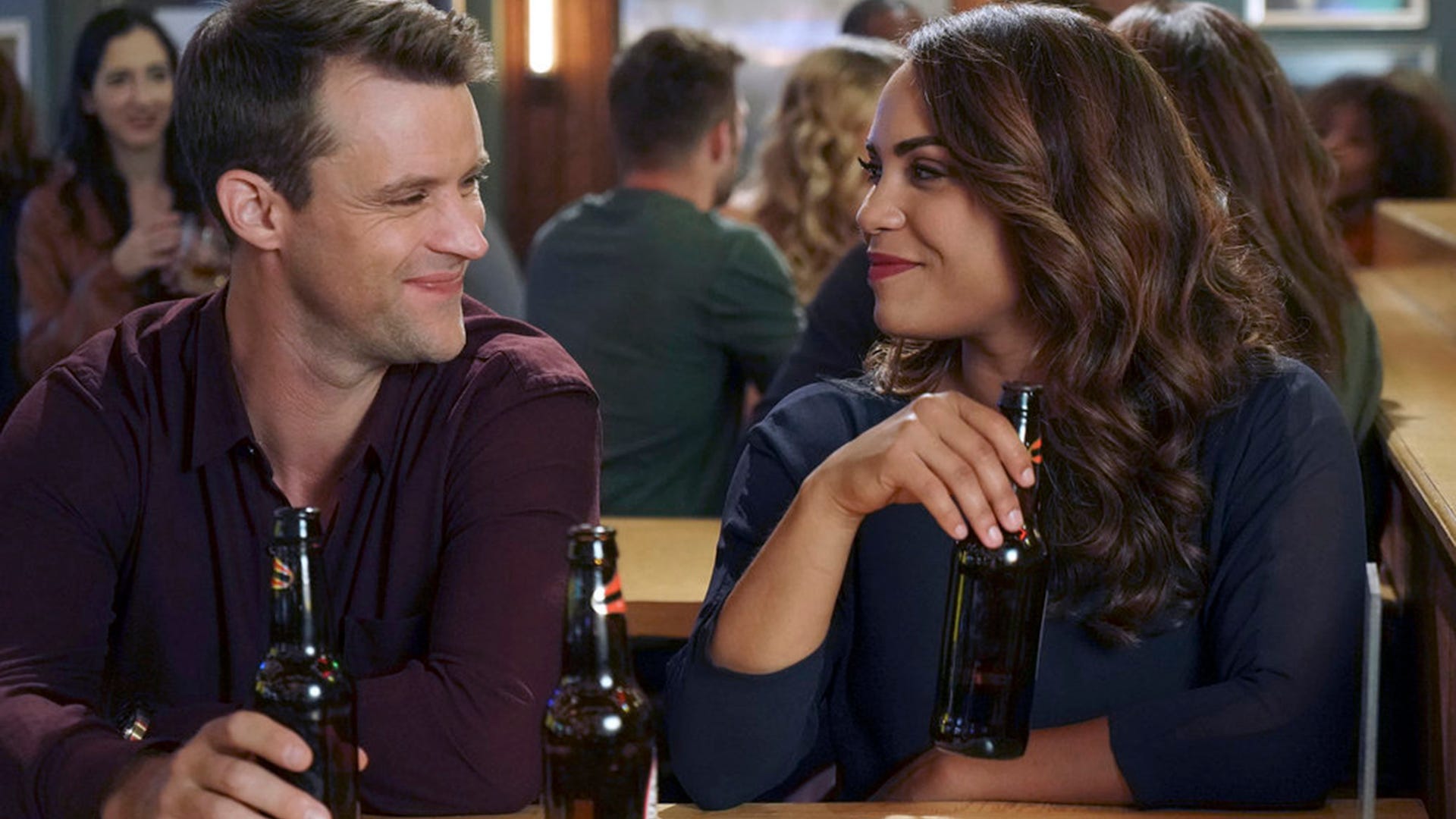Join or Sign In
Sign in to customize your TV listings
By joining TV Guide, you agree to our Terms of Use and acknowledge the data practices in our Privacy Policy.
Monica Raymund on Her Directorial Debut on SVU and If She'll Ever Return to Chicago Fire
The actress has her sights set on directing
After bidding farewell to Gabby Dawson on Chicago Fire, Monica Raymund is stepping behind the camera to pursue another dream: directing. The actress will helm Thursday's episode of Law & Order: Special Victims Unit which hits the airwaves at 10/9c on NBC.
It's all part of NBC's Female Forward initiative which aims to foster greater gender parity behind the scenes. The program opens the door for upcoming female directors, giving them the opportunity to shadow one of NBC's current scripted shows for up to three episodes with a commitment to direct at least one episode. For Raymund, taking on the TV juggernaut that is SVU was an opportunity to flex another creative muscle while also staying true to her passion of telling compelling stories about social justice.
Ahead of the major milestone, we hit up the actress-turned-director about pursuing her passion behind the camera, whether or not she'll return to Chicago Fire and what's next for her on screen.

Monica Raymund, Law & Order: Special Victims Unit
Virginia Sherwood/NBCDiscover your new favorite show: Watch This Now!
How did you get involved with the program?
Monica Raymund: I was in the NBC family as talent but I had explored directing a few years ago and found that it's something I'm very seriously passionate about and when the application came out, I submitted my short film along with all the other requirements. I went through an interview process and then I was accepted.
Were you assigned to Law & Order: SVU or was that your choice?
Raymund: The way I understand it is they assign who goes where based on the work that is submitted. For example, my short film was a piece about social justice. It was a 15-minute film about a young woman who was being sex trafficked. That topic and that genre fits very well with SVU so that's probably why I got assigned it.
How do you think NBC's Female Forward program helps combat the overall lack of women represented behind the camera?
Raymund: The program helps by just literally giving space. It's a very topical conversation, obviously, this idea of inclusivity and equality. The Female Forward program is set up to address specifically that, creating space for women to be able to play on the field. And then by way of creating space, hopefully forging a more inclusive and equal playing field. I think that it says something about how intense these conversations have been for the past few years that now we're moving from a place of words into a place of action.
Did you find it intimidating to take the helm of such an iconic series as Law & Order: SVU?
Raymund: I was not intimidated so much as I was excited to be able to continue working with my bosses who were my bosses when I was in front of the camera [on Chicago Fire]. And so, having an understanding of that vocabulary and being in the Wolf Films world for six years was definitely an advantage [and I felt] comfortable transitioning into Law & Order world. Everyone's familiar with the show and it revolutionized television in terms of format and content. The show helped create a space for conversation about how we can be of service to victims and that's something Mariska Hargitay has taken extremely personally, having started organizations just from doing the show. So when I was assigned to [SVU], it felt very natural because illuminating problems within social justice is a part of my calling as an artist.
As a director herself, did Mariska have any advice for you?
Raymund: We talked a lot about both [of us] being leading women in Dick Wolf series and what an opportunity that created for us to take the risk of expressing our curiosity and desire to become directors. When she first started on her show as the lead, this was 20 years ago. It was a different tone in the television world, in the Hollywood world. Not drastically different than what we have now but just enough where space and agency was just nonexistent. And now that's changing... And while I remain a student, while I have so much to learn--because I did not go to film school--I'm learning this as I go. I've been in front of the camera for 12 years and now I'm behind it so this is a very experiential learning experience for me. What I did tell Mariska and what we agreed upon is that I will not be apologetic. I will not apologize for taking up space in the world.
That's important.
Raymund: Yeah and I think that is something we discussed, how important it is to find that unapologetic power. That's very difficult because we don't always find the support. But just being able to meet Mariska and knowing that we were fighting for the same cause, it was a beautiful experience of feeling support from another strong woman. We have to continue supporting each other. We have to be there to help the other because if we stay in this together, we will overcome.

Monica Raymund, Law & Order: Special Victims Unit
Virginia Sherwood/NBCNow that you've had this experience, what's next? Are you looking to direct more Law and Order episodes or expand to other shows?
Raymund: I'm just taking it one step at a time. My wishes, hopes and dreams are that I continue directing. I hope for Law and Order and/or other shows across the spectrum of networks and formats. It is my dream, ultimately, to direct my own features as well. It's something that is changing as I fluidly change too. Because I am an actor and I will always be an actor, both of those things will coexist.
What was the most memorable part of your first time stepping on the set of Law & Order: SVU as the director?
Raymund: I was curious and slightly intimidated by how efficient that machine is. The crew and the talent have been working together for so long that the show almost shoots itself. The first thing I remember is [asking myself] what can I bring to this? How will I make this different? What is it that I'm bringing to the table? What is my point of view? And how do I express that through this show?
How do you add your own input to something that's already so established?
Raymund: I don't know that there is an answer to that as much as there is an experiment to it. So what I've been experimenting with is coming in prepared. It's really important that I can control what I can control. I can't control what happens on set all of the time, there's gonna be unforeseen crises. But what I can control is how prepared I come in that day. So doing the homework, making sure that I have a plan, that I have a vision, that my intention is clear, that I understand the story. That's the most important thing.
Did anything unforeseen happen? What was the biggest unexpected event?
Raymund: This is the world of television, baby! Unforeseen things happen almost every minute on the set. For example, we got rained on and I couldn't shoot a scene in a specific location. So I said cool, that's alright. It's raining? Alright. We can't control that but we can control where we set it now. There was a really beautiful bridge right down the street from where we were shooting. [I thought] it would be really cool if we shot under the bridge with rain coming down both sides. It told the story and we made it work.
My personal approach to life and I'm finding that I'm using it in my work life, is that everything has a solution. Unless a meteor is spiraling towards Earth, there is nothing that we can't figure out how to deal with. And so, that helps manage my anxiety and my stress and allows me to have fun. Because things are gonna happen, you know? S--t happens.
Derek Haas says the door is open for you to return to Chicago Fire. Is that something you're open to doing?
Raymund: I really do miss my cast and my crew. It's a pleasure and an honor working with those people. I really love it. The storytelling of first responders in America what they do every day to protect people like you and me, it's a pretty incredible honor to tell that story. Honestly, I don't know! If I just can't bear it and must go back to the show, I know the door remains open and I'm grateful for that. But girl, I'm trying to figure out what I'm gonna do tomorrow so I have no idea whether or not I'm going to return to the show. That is up for debate but I am very humbled that the door remains open.
Law & Order: SVU airs Thursdays at 10/9c on NBC.
Photos: Ranking the Best Relationships from One Chicago

Jesse Spencer and Monica Raymund, Chicago Fire
Elizabeth Morris/NBC